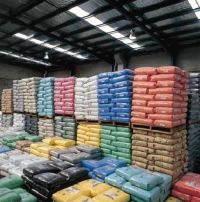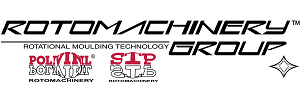
There special resins have been made available the material prices are high due to the development costs that are passed through to the user and the additional cost of small-scale grinding of the plastic.
Rotational moulders currently use several different materials for rotational moulding however most of the products made using the process use polyethylene in a powder or pellet form. In different parts of the world this material is supplied in either a pellet form which is then ground into powder coloured and prepared to specification by the rotational moulder or the powder is supplied to the moulder ready for manufacture. Apart from a huge range of colours powder may also include a flame retardant uv resistance or a range of other specific formulations.
Currently polyethylene in its many forms represents about 85% to 90% of all polymers that are rotationally moulded. Cross-linked grades of polyethylene are also commonly used in rotational moulding. PVC plastisols make up about 12% of the world consumption and polycarbonate nylon polypropylene and other materials make up the rest. PE for the process can be pulverised into a powder at room temperature. Normally powder particles vary from less than 150 microns to about 500 microns. The particle size distribution is vital to the appearance of the final product. PE has to flow easily during the process which is measured by a Melt Flow Index value. High MFI material will have a low viscosity and usually for rotomoulding an MFI in the range of 2-8 is desirable depending on the product specifications.
PE’s for rotational moulding come in various densities including Low Density (LDPE) Linear Low (LLDPE) Medium (MDPE) and High (HDPE). The density of the material will have an effect on strength stiffness chemical resistance and impact vulnerability.
Rotomoulders perform a series of tests on materials including dry flow, bulk density, wall thickness, drop impact and others. If you would like more information about the tests, what they tell you and how they are performed, check out the ARMA Material Testing Guide.







